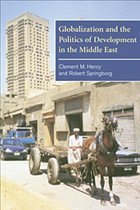At the beginning of the twenty-first century countries in the Middle East and North Africa contend with the threats and opportunities of economic globalization, the driving force of change in the contemporary world. As the authors confirm in their straightforward and, at times, irreverent analysis of the regions' response to these challenges, it is globalization which is the key to an understanding of economic reform. Through an investigation of the structures of state and civil society, including financial systems, they also demonstrate that there is a direct correlation between economic performance and democratization. In other words, the more liberal the polity, the more effective is its economy in responding to globalization. With its original, and incisive approach to the politics and economics of the Middle East and North Africa, this will be an essential purchase for students and policy-makers and anyone trying to come to grips with economic globalization generally.
Table of contents:
1. Overview; 2. The challenges of globalization; 3. Political capacities and capitalist legacies; 4. Bunker states; 5. Bully praetorian states; 6. Globalizing monarchies; 7. Economics and the politics of identity in the democracies; 8. Conclusion.
The authors divide the Middle East into military dictatorships, monarchies and conditional democracies. They conclude that the democracies and monarchies have a better chance of benefitting from economic globalization than the military dictatorships, but politics stands in the way of necessary reforms even in the countries with the most promise.
An incisive, irreverent analysis of the political economy of the Middle East and North Africa.
Table of contents:
1. Overview; 2. The challenges of globalization; 3. Political capacities and capitalist legacies; 4. Bunker states; 5. Bully praetorian states; 6. Globalizing monarchies; 7. Economics and the politics of identity in the democracies; 8. Conclusion.
The authors divide the Middle East into military dictatorships, monarchies and conditional democracies. They conclude that the democracies and monarchies have a better chance of benefitting from economic globalization than the military dictatorships, but politics stands in the way of necessary reforms even in the countries with the most promise.
An incisive, irreverent analysis of the political economy of the Middle East and North Africa.

